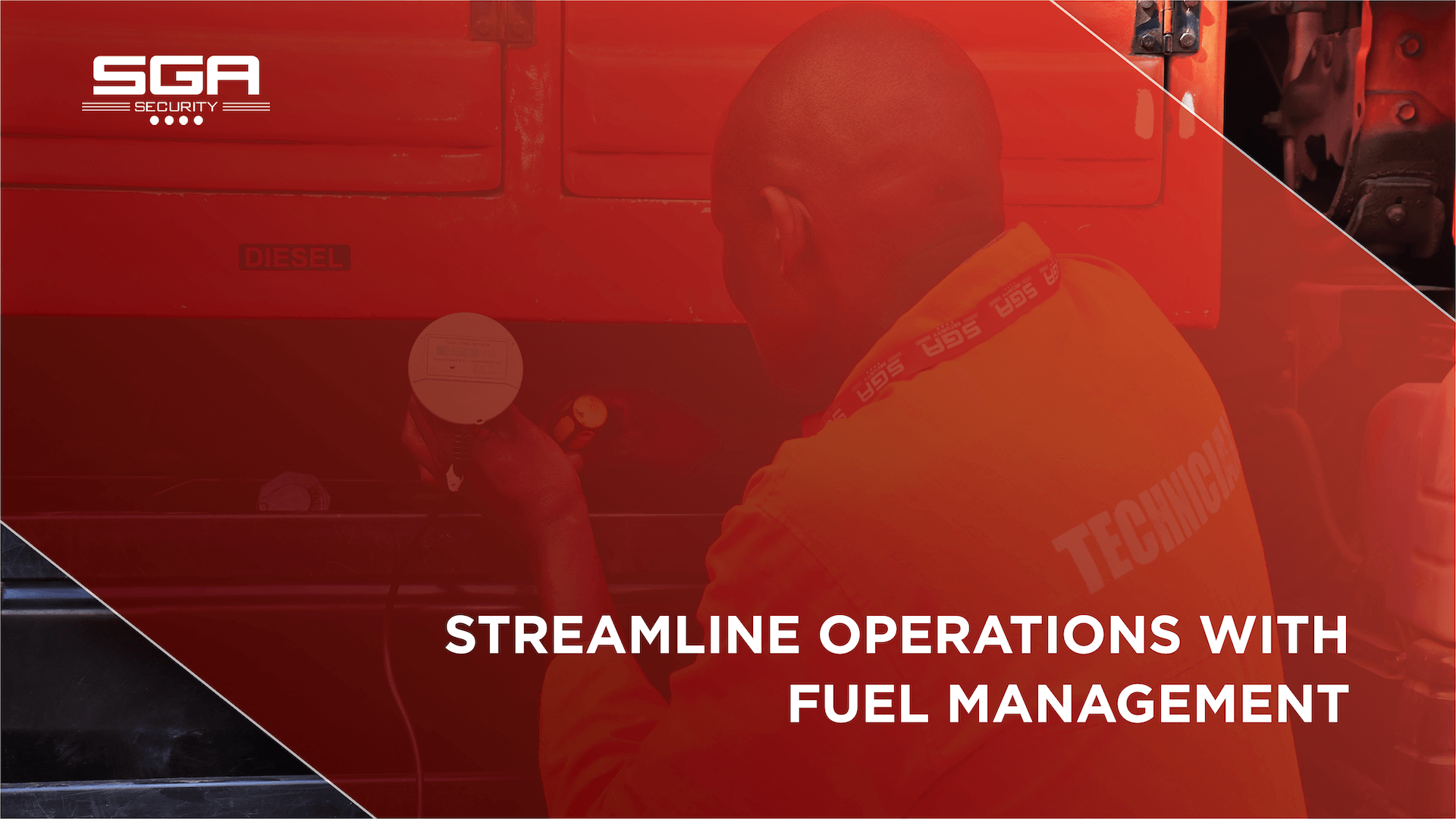- Home
- About Us
- Services
- Our Clients
- CSR
- SGA Security Kenya Visit to Wings of Hope Rescue Home
- SGA SECURITY CHAMPIONS SUSTAINABILITY THROUGH RECYCLING OF OLD GUARDS’ UNIFORMS INTO SCHOOL BAGS
- SGA SECURITY UGANDA ADVOCATES FIGHTING AGAINST BREAST CANCER
- SGA SECURITY KENYA SPONSORS THE 2023 AFRICA CONCOURS D’ELEGANCE
- SGA Security Sponsors Car No.7 Ahead of The Rhino Charge Competition
- SGA SECURITY PARTNERS WITH AFRICA COLLECT TEXTILES TO RE-USE GUARDS’ UNIFORMS INTO SCHOOL BAGS
- WAFANYAKAZI WA KIKE WA KAMPUNI YA SGA WATOA MSAADA WA VIFAA HOSPITALI YA OCEAN ROAD
- Security firm sponsors The Great African Cycling safari
- Contacts
- Careers
- News


In a market where every coin counts, competition is fierce and technology is rapidly evolving, businesses are always looking for ways to boost efficiency while cutting costs.
One such way is adopting effective fuel management solutions.
Implementing an effective fuel management solution can lead to substantial savings and make operations much smoother especially for businesses that rely heavily on transportation or machinery.
By the end of this article, you will be able to understand fuel management, its importance and why you need to adopt these solutions.
What is a Fuel Management Solution?

A fuel management solution is all about using technology and data to keep track of, monitor, control, and optimize how fuel is used. This includes fuel tracking systems, telematics, fuel cards, and advanced analytics.
Fuel management aims to give a clear picture of fuel consumption and spot areas where efficiency can be improved and costs can be slashed.
Why Fuel Management Matters

Fuel is a crucial resource for businesses with fleets of vehicles or heavy machinery. If it's not used efficiently, it can lead to higher operational costs, lower profits, and a bigger environmental impact.
Here are a few reasons why fuel management solutions are important for businesses.
- Cost Control: Keeping an eye on fuel usage helps businesses pinpoint waste and take steps to cut consumption, leading to significant savings.
- Operational Efficiency: Optimizing fuel use can make operations run more smoothly and ensure vehicles and machinery are used effectively.
- Environmental Impact: Cutting down on fuel use helps reduce carbon emissions, making operations more sustainable.
- Regulatory Compliance: Many places have rules about fuel use and emissions, therefore, a good fuel management system helps businesses stay compliant.
Key Components of a Fuel Management Solution

A solid fuel management solution usually includes several key parts that work together to monitor and optimize fuel use:
- Fuel Tracking Systems: These systems use sensors and software to track fuel levels, usage, and refuelling activities in real-time. This data is crucial for identifying patterns and areas for improvement.
- Telematics: This technology combines GPS tracking with onboard diagnostics to provide detailed information about vehicle performance and fuel consumption, allowing better route planning and driver behaviour monitoring.
- Advanced Analytics: By analyzing the data collected from fuel tracking systems, telematics, and fuel cards, businesses can gain insights into fuel consumption patterns and find opportunities for optimization.
Benefits of Implementing a Fuel Management Solution

Implementing a fuel management solution offers numerous benefits that can significantly impact a company's bottom line and operational efficiency.
- Cost Savings: By identifying and eliminating wasteful fuel practices, businesses can achieve substantial cost savings. This includes reducing idle times, optimizing routes, and improving driving behaviours.
- Improved Efficiency: With real-time data and insights, companies can make informed decisions that enhance the efficiency of their operations. This includes better route planning, timely maintenance, and effective resource allocation.
- Enhanced Security: Fuel management systems provide better control over fuel transactions, reducing fuel theft and fraud. Fuel cards, in particular, offer detailed transaction data that can be monitored for suspicious activities.
- Sustainability: By optimizing fuel use, businesses can reduce their carbon footprint and contribute to environmental sustainability. This can also enhance the company's reputation and align with corporate social responsibility goals.
- Regulatory Compliance: A fuel management solution helps ensure compliance with regional regulations regarding fuel use and emissions. This reduces the risk of penalties and enhances the company's operational credibility.
Future Trends in Fuel Management Solutions

As technology keeps advancing, fuel management solutions are set to become even more sophisticated. Some future trends include:
- Integration with IoT: The Internet of Things (IoT) will enable even more detailed and real-time monitoring of fuel use, vehicle performance, and environmental conditions
- Artificial Intelligence (AI): AI-powered analytics will provide deeper insights and predictive capabilities, allowing for proactive optimization of fuel use.
- Alternative Fuels: As the adoption of alternative fuels such as electricity and hydrogen increases, fuel management solutions will evolve to include these new energy sources.
- Blockchain Technology: Blockchain can enhance the security and transparency of fuel transactions, reducing the risk of fraud and ensuring data integrity.
Final Thoughts: Your Business Needs Modern Fuel Management Solution

Fuel management solutions are a game-changer for businesses looking to boost efficiency and cut costs. By providing real-time data and insights, these solutions help companies make smart decisions that enhance operational efficiency, cut down on waste, and support sustainability goals.
As technology continues to evolve, fuel management solutions will become even more advanced, offering new opportunities for optimization and savings. For businesses reliant on transportation and machinery, investing in a comprehensive modern fuel management solution is a strategic move that promises substantial long-term benefits.
This includes partnering with trusted providers like SGA Security to ensure reliable, modern and efficient fuel management solutions.
